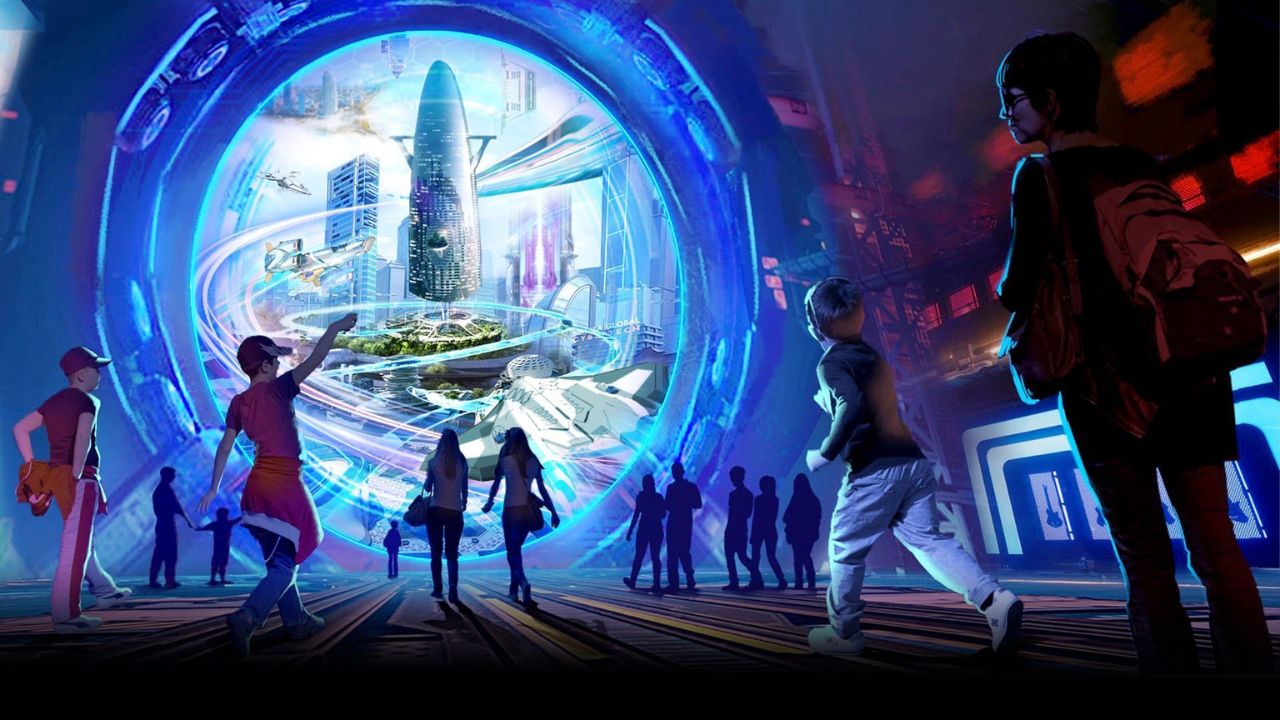
Exploring the Future: Metaverse Advertising Takes Center Stage
Technology has been rapidly growing and shifting. We’re seeing innovations that were previously unimaginable. One of them is the metaverse which is a unique, immersive virtual environment that is quickly taking over the internet.
Neal Stephenson suggested the word “metaverse” in his science fiction book published in 1992 called The Snow Crash. In it, he describes a three-dimensional virtual universe in which humans interact with one other and software agents as avatars. In the second half of 2021, Facebook CEO Mark Zuckerberg laid out his vision for the future of the social media giant, putting the company’s emphasis on the Metaverse into a formalized form. Zuckerberg stated, “We believe the Metaverse will be the successor to the mobile internet, we’ll be able to feel present – like we’re right there with people no matter how far apart we actually are.” Similarly, some of the biggest tech corporations are trying to create a formalized version of the metaverse using various devices that will be available in every home and will be accessed from anywhere, anytime.
Metaverse, if put simply, is defined as a 3D, immersive digital world where people interact with one another on multiple platforms. To make this experience immersive, augmented reality and virtual reality are used. The metaverse mimics the real world, and people can use avatars to interact with others and purchase virtual goods.
Digital marketers need to be kept up to speed with the latest technological developments. This includes understanding the metaverse and its full potential. What marketers need to understand is that the metaverse is not just a trendy new thing which everyone wants to get a piece of, instead, it seems like it is here to stay and is making its way to be the next big thing.
Who is the target audience?
Marketers considering metaverse marketing need to keep in mind that the target audience is millennials and Gen Zers. These generations are also avid users of some forms of metaverses, such as games and technologies like VR.
It is evident that there is a shift in business mindset and adaptation from looking at a virtual reality beyond just gaming to using VR to create, explore, identify, express, collaborate, and socialize.
Moreover, the pandemic gave way to the emergence of new technologies and opportunities as well. VR is quickly moving away from the traditional stigma of being a waste of time to the next technology revolution, much like how mobile technology has shaped our culture from the first version of the iPhone to now. Hence, Brands such as Gucci, Nike, Disney, Snap, and Facebook are in the midst of creating virtual communities, content, assets, fashion, art, experiences, and worlds.
Let’s take a look at the characteristics of the Metaverse which will shed some light on why it can be perfect for marketing:
*Persistent: The Metaverse is an entirely immersive, shared experience. It will be a parallel reality that exists in real time and never stops.
*Synch: In the Metaverse, users will interact with one another and their digital environment in real-time. Just like they would in the physical world, participants of the Metaverse will react to their virtual environment and each other.
*User-driven: In Metaverse, users can create their content, or they can enhance existing content.
*Efficient economy: Metaverse will have fully functioning economies based on non-fungible tokens, cryptocurrency, and more.
For a better understanding of how metaverse marketing is being explored by various companies, let us have a look at the below points:
*Dimension Studio made $6.5 million in revenues as a result of its experimentation with metaverses for fashion brands. They established a virtual production set-up that allows a user to step onto a platform, be scanned by 106 cameras, and be dropped into virtual worlds to test out garments and other items. They are most known for their work on Balenciaga’s Afterworld game for Autumn/Winter 2021.
*Grand Theft Auto V: an open-world sandbox game, released clothing options that were similar to what the protesters in Hong Kong wore. Hong Kong protesters were able to take their battle in the real world into the metaverse, joining many artists who have been repurposing virtual worlds for political expression.
*Home decor company Houzz allows consumers to create digital photo collections of their furniture and home items. Houzz earns each time someone purchases items through their service. In 2017, they added a 3D viewer that lets users view items in 3D directly through a camera and visually incorporates them into the user’s physical space.
*Google Maps exhibited an AR feature of their walking directions feature. This feature offers exact visual instructions and arrows that would make it easier for users to find their way to their destinations. The user simply needs to point their camera towards the direction in which they need instructions, and the AR feature will point them in the correct direction.
Social media marketing agencies should take note that the metaverse is a shift away from traditional advertising and toward the creation of brand engagements that are more experiential and thrilling while also being less intrusive.



